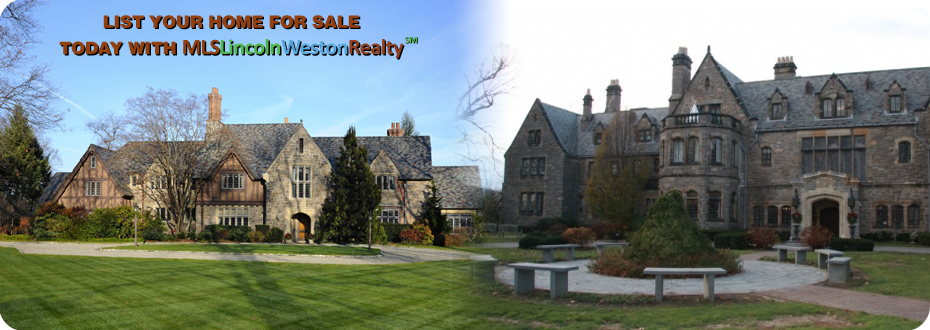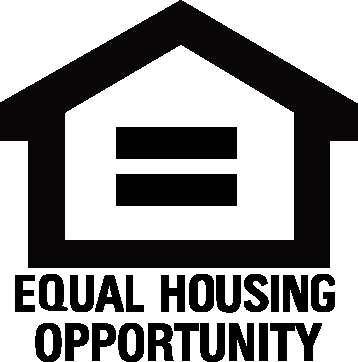April 2014 Blogs
4 Saving Solutions for Buyers on a Budget:
Most folks do all the math they can find online about how much house they can afford. Then they think about what they are currently paying in rent and how much they’d be comfortable going up from there, if any. Finally, they hit up the mortgage broker, have them run the numbers and get some final, definitive answer on what the bank will allow them to finance and spend.
Somewhere amongst all those numbers they pick a price that sits well in their heart, their mind and, hopefully, their monthly budget, as a maximum home purchase price – complete with its corresponding monthly expenses like taxes and insurance.
Unfortunately, there are a few critical line items that commonly slip through the cracks of one or more of these calculations. Our mortgage pros only know what they have in front of them, which is mostly based on expenses that show up on our credit reports or loan applications. Additionally, when it comes to our DIY budgets, we often create our household spending plans based on our ideal spending patterns, vs. our actual ones.
One critical exercise to do before you lock in a price range is to look back at your bank statements and spending breakdowns from the preceding few months to see how your actual spending measures up against what you think it should be. Find the places where you need to either adjust your spending or your budget to reflect reality before you buy a home. The other critical exercise is to understand what expense categories should be factored into your calculus on how much house you can afford, even though they are commonly viewed by budget software and banks as discretionary or even luxury line items.
Here are four of those overlooked expense buckets to make sure you consider:
1. Essential “Extras.” Sometimes what we say is important to us is slightly different than what is really important, but I believe you can tell what someone values by what they invest their time, energy, love and money in. So, it’s no surprise that there are lots of meaty expenses that some home buyers-to-be see as essential which a bank or even a financial planner might not have on their radar screen.
Just a few of those items include:
• Charitable giving and religious tithes, dues and offerings
• Expenses related to caring for an aging parent
• Non-western health cares and therapies that are not covered by your insurance, like acupuncture, massage and chiropractic.
I call these out in particular because they are categories which millions of Americans spend hundreds or thousand of dollars on every month – and because there might be no place to even enter such an expense on a loan application or budget software. If you invest a great deal of cash into these items and value them enough to keep doing so after you close escrow, make sure you factor them into your own decision making about what you can afford. It’s permissible – even advisable – for your personal price max to be a lot lower than what the bank deems your top dollar.
2. “Superfluous” Cushion Stuffing. Ding dong, the recession’s over, folks! And we made it through. But during those long, dark years, many people cut back on investing and saving for rainy days and retirement days alike. If that’s you, and your personal economy has recovered enough to support buying a home, congrats! Just make sure you circle back to those recession-era cutbacks and correct for them before you increasing your monthly housing spend. You might want or need to save more than traditional financial guidelines would suggest in order to reposition your retirement or to fluff your cash cushion back up to your personal comfort level.
Make sure you don’t overextend yourself on a home without accounting first for stuffing the cushion(s) you’ll need in the future.
3. Enriching Experiences. Buying a home is one of the single-most high ROI (return on investment) life enriching experiences a person can have, if it’s done smartly and sustainably. But lots of us also invest lots of dough into other enriching experiences, and want to avoid being so cash poor we can’t afford any of them after escrow closes.
Some of the big-ticket items that you might be expending cash on to engage in include:
• Travel, vacations and family outings
• Trainers, coaches and therapists
• Yoga and mind-body wellness activities
• Retreats and workshops
• Schooling, conferences, basic and continuing education
If you decide you’re willing to cut back on these sorts of things or forego them entirely to redirect those funds into your home, that’s fine. Just make sure you go into that decision with eyes wide open, while you still have time to decide to spend less so you can continue to engage in these enriching activities.
4. Kid-related Cash Outlays. The honest-to-goodness truth about kidlets is as follows: they cost. Sure, the rewards of parenthood are well worth the cash expenses, but the costs are considerable and are often overlooked when it comes time to list out the line items relevant to how much you can afford to spend on housing. The big ones generally get on the list, like monthly child care for very young children and private school and college tuition for the older ones.
Lots of others get lost in translation of your ideal spending categories and allocations against where your money really goes on a monthly basis. Items that often get underestimated or flat-out omitted in this category include:
• Extracurriculars – language lessons, music lessons, clubs and classes
• Gear and equipment – all the gear they need to engage in the above, but also things like pricey school books and educational electronics
• College Savings – Whether or not you have a formal 529 plan, if you have children you hope to help pay for higher education, you should be allocating some level of regular savings for this.
3 Tactics and Trade-Offs for Finding ‘The One’:
When starting the house hunting process, most buyers are starry-eyed optimists convinced they’ll find the perfect home for their family at a reasonable price. With any luck, it’ll even come with a self-cleaning pool, a two-story walk-in closet, and a magical mirror that erases inches from their waistline. Then reality hits.
Compromises are as much a part of the home buying journey as getting the keys. Here at Trulia HQ, we’ve heard stories from hundreds of users about every difficult real estate decision you can imagine. We’ve compiled a few of the most common home buying hang-ups, the trade-offs they often entail, and some tactics for how to get through them:
The Hang-Up: Walking in to an open house and wanting to turn right around and walk back out. Did you see that shag carpet? Deal breaker.
The Trade-Off: Modern design or good bones?
The Tactic: This piece of advice is so often repeated that it’s almost cliché, but it’s really important, so we’ll say it again: Focus on the aspects of the home that are permanent – the layout, the location, the exposure to natural light – and ignore the cosmetic issues that are easily swapped out – the carpet, the wallpaper, and that strange smell. These problems are only skin deep, and if you’re being too superficial, you’re likely to miss out on ‘the one.’
The Hang-Up: Finding an incredible house with everything you want… in the exact wrong location.
The Trade-Off: Tricked-out house or safe, convenient neighborhood?
The Tactic: Do your homework. Calculate how much time (and money) you’d lose to a daily commute, look into the actual crime rate for the area, and think about how the neighborhood will affect your home’s resale value—is this area undergoing a renaissance, or are you likely to continue to be the nicest house on the block? Location is a huge deal worthy of your attention because you don’t just marry the house, you marry the neighborhood.
The Hang-Up: Falling fast and hard in love with a big, beautiful house, only to realize that it’s out of your price range. There’s no such thing as a free lunch square foot.
The Trade-Off: Bigger space or smaller mortgage?
The Tactic: Ask yourself the hard questions. That formal dining room is divine and it would be great to have an extra bedroom, but how many dinner and house guests did you really have last year? What could you do with that extra money? What would you miss out on if you went over budget? You may decide that your family could legitimately use the extra square footage—you can’t put the new baby in the pantry, after all. But remember folks, bigger is not always better.
Freshen Up On The 7 Financial Benefits of Home Ownership This Tax Season:
The financial benefits of homeownership are evident year round, but particularly around tax time – they seem to jump off the page. Let’s examine how homeownership makes “cents” – from the tax benefits, to good old fashioned financial stability.
1. Homeownership Builds Wealth Over Time. We were always taught growing up that owning a home is a financially savvy move. Our parents knew it, and their parents knew it. But this past decade of real estate turbulence has shaken everyone’s confidence in homeownership. That is why it’s so important that we discuss this again now that we’re in a ‘new market.’ Homeownership can be a very savvy financial move – but only if people buy homes they can actually afford. In 2014, this idea of sticking to a home you can afford to gradually build wealth is a “rule” that just happens to be new and old at the same time.
2. You Build Equity Every Month. Your equity in your home is the amount of money you can sell it for minus what you still owe on it. Every month you make a mortgage payment, and every month a portion of what you pay reduces the amount you owe. That reduction of your mortgage every month increases your equity. That is especially true now with the elimination of risky mortgages like negative amortized and interest-only loans – thanks to the new “Qualified Mortgage” rules. The way mortgages work is that the principal portion of your payment increases slightly every month year after year. It’s lowest on your first payment and highest on your last payment. Thus, as the months and years go by, your equity grows!
3. You Reap Mortgage Tax Deduction Benefits.
• Mortgage deduction: The tax code allows homeowners to deduct the mortgage interest from their tax obligations. For many people this is a huge deduction, since interest payments can be the largest component of your mortgage payment in the early years of owning a home.
• Some closing cost deductions: The first year you buy your home, you are able to claim the points (also called origination fees) on your loan, no matter whether they are paid by you or the seller. And because origination fees of 1 percent or more are common, the savings are considerable.
• Property tax is deductible: Real estate property taxes paid on your primary residence and a vacation home are fully deductible for income tax purposes.
4. Tax Deductions on Home Equity Lines. In addition to your mortgage interest, you can deduct the interest you pay on a home equity loan (or line of credit). This allows you to shift your credit card debts to your home equity loan, pay a lower interest rate than the horrendously exorbitant credit card interest rates, and get a deduction on the interest as well.
5. You Get a Capital Gains Exclusion. If you buy a home to live in as your primary residence for more than two years then you will qualify. When you sell, you can keep profits up to $250,000 if you are single, or $500,000 if you are married, and not owe any capital gains taxes. Now, it may sound ridiculous that your house could be worth more than when you purchased it after these past several years of falling house prices. However, if you purchased your home anytime prior to 2003, chances are it has appreciated in value and this tax benefit will come in very handy.
6. A Mortgage Is Like a Forced Savings Plan. Paying that mortgage every month and reducing the amount of your principal is like a forced savings plan. Each month you are building up more valuable equity in your home. In a sense, you are being forced to save—and that’s a good thing.
7. Long Term, Buying Is Cheaper than Renting. In the first few years, it may be cheaper to rent. But over time, as the interest portion of your mortgage payment decreases, the interest that you pay will eventually be lower than the rent you would have been paying. But more importantly, you are not throwing away all that money on rent. You gotta live someplace, so instead of paying off your landlord’s home or building, pay off your own!
As always, you must look very hard at your personal situation before making the big decision to buy.







